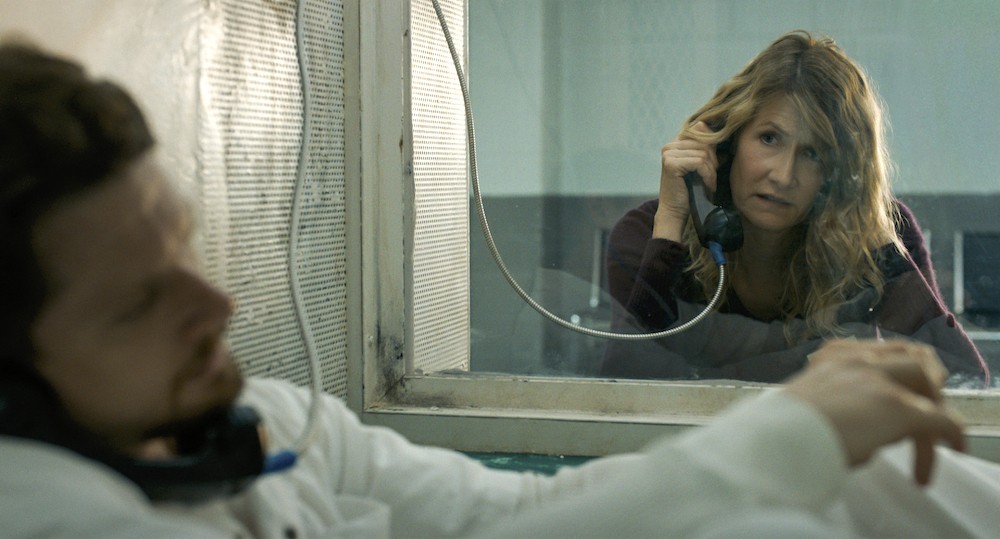Trial by Fire
Trial by Fire, 2019, 2 ½ stars
Fire burns hot but unevenly
From The Orlando Weekly, May 15, 2019
In 1992, Cameron Todd Willingham was judged guilty of burning his three baby girls to death in a house fire in small-town Texas. But as he sat on death row, a reexamination of evidence and testimony showed that Willingham was probably innocent. Texas killed him anyway.
This revelation would normally be a spoiler, but these kinds of controversial decisions are already tragically familiar. This one garnered national attention for more than a decade, culminating in an excellent 2011 documentary, Incendiary: The Willingham Case. It also reared its head during the 2012 presidential candidacy of Rick “Oops” Perry, who, as Texas governor, was partially responsible for quashing Willingham’s last chance at life. But there’s another side to the story.
Willingham’s final days in prison might have amounted to little except despair if not for Elizabeth Gilbert, a writer who struck up an unlikely friendship with the felon. Her concern for Willingham ensured he would not be forgotten and invigorated the anti-death-penalty movement. First chronicled in a 2009 New Yorker article by David Grann, the unique relationship is at the heart of Trial by Fire, a new drama written by Geoffrey Fletcher (Precious) and directed by Edward Zwick (Glory, The Last Samurai).
“You just wanna do something, help somebody who’s feeling so much,” Gilbert tells her kids when they ask why she’s spending less time with them than with a convicted murderer. “Am I making any sense?”
“Not really,” they answer.
Well, Zwick’s film certainly makes sense. What it doesn’t make, regrettably, is an aesthetic impact. Though English actor Jack O’Connell (This is England, Money Monster) is spot on as Willingham, the rest of the film alternates between moments of power and mediocrity. At its best, the movie echoes Dead Man Walking and Conviction while making our blood boil with political fervor and moral indignation. At its worst, it’s pandering, meandering, overscored, overwritten in exposition and underwritten in character development. It does offer decent (if slightly broad) entertainment, but not much beyond that.
As Gilbert, Laura Dern is just competent. Clearly invested in her character, she’s rarely cloying, but she fails to imbue her trope-packed scenes with the requisite gravitas. Emily Meade, who appeared with O’Connell in Money Monster, is memorable as Willingham’s wife, but there’s a ton of interesting interpersonal information that Zwick leaves on the cutting-room floor, if it ever made Fletcher’s script. On the plus side, Jeff Perry, perhaps best known as a co-founder of Chicago’s Steppenwolf Theatre Company, delivers a scene-stealing turn as arson investigator Gerald Hurst. (If you like the fake Hurst here, don’t miss the real deal in the doc.)
Illustrative of the script’s shortcomings, Willingham is found guilty and sentenced in the same scene. To explain the problems with that, I turn to a writer more qualified than either I or Fletcher: Charles Beaumont. In “Shadow Play,” Beaumont’s 1961 episode of The Twilight Zone, Dennis Weaver’s character is stuck in a recurring nightmare in which he’s tried, sentenced and executed repeatedly.
“It’s so pat. I got tried and sentenced the same day. It doesn’t work like that! But, you see, that’s the way I saw it in my mind, and so that’s the way it is,” he says. “It’s like a movie.”
© 2019 Orlando Weekly / MeierMovies, LLC
